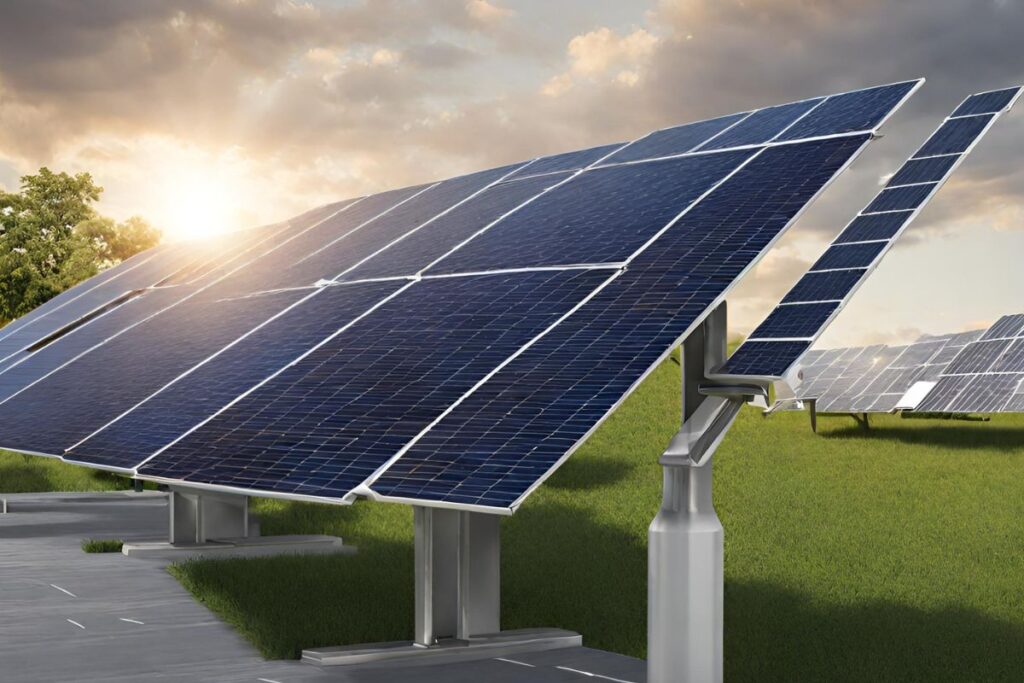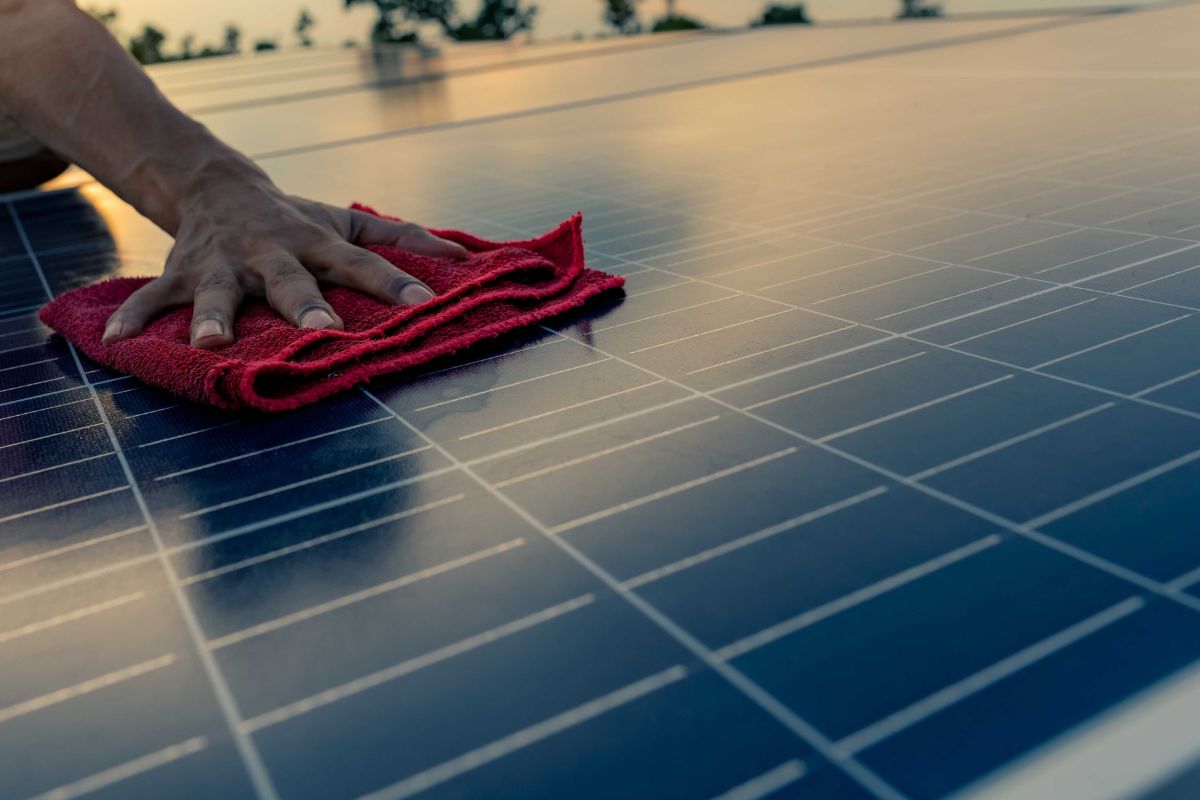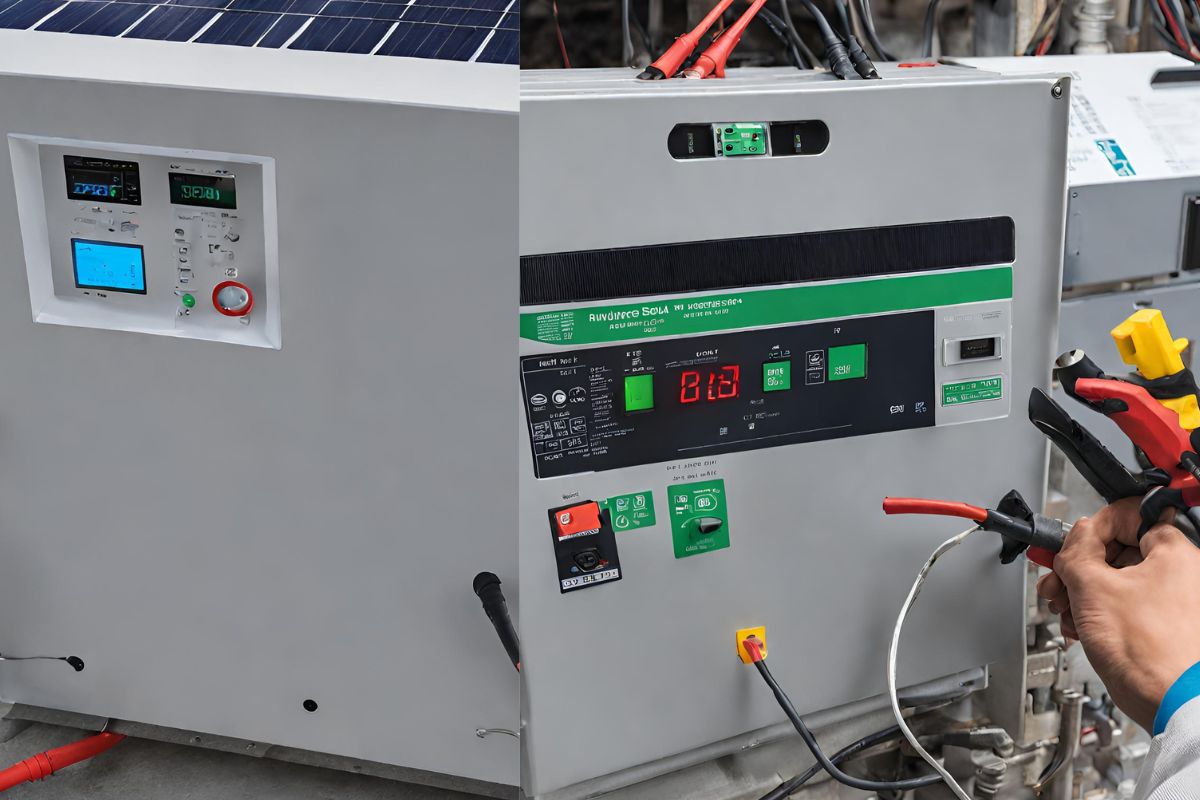Everyone can see that the world is changing along with new smart solar panel innovations. Nature has given us all signs that if we do not change along with it to sustain stability. It may have adverse effects on our planet and future generations.
However, more and more people are taking a step towards installing smart solar energy systems in their homes today.
Among these types of energy, smart solar panels stand out. Within the solar panels, we find photovoltaic, capable of converting solar radiation into electricity.
One of the most viable solutions for using sustainable electricity is photovoltaic systems and smart solar panels; the good news is that this energy source is increasing yearly.
Let’s dive deep into it now in this article.
Here is another article about the benefits of smart solar energy.
What Is A Smart Solar Panel?
Smart solar panels are based on the application of the Internet of things, which aims to increase energy efficiency and achieve intelligent use of solar energy.
It becomes easy with the help of a WiFi connection between the self-consumption installation and the control device, and all tasks can be carried out remotely and at any time of the day.
Specifically, smart solar panels are solar energy systems characterized by using inverters and smart meters with the capacity to provide real-time data about their performance.
The truth is that the three components are designed to work in an integrated manner.
Thus, solar energy could integrate a robust and safe system capable of managing itself, that is, automatically.
Through the WiFi connection between the self-consumption installation and the smart mobile phone or smartphone, both systems would be connected to the program, turn on, and turn off their various functions.
Smart solar panels provide a technological experience that adapts to the present and future of home electricity consumption installations.
In this way, the control system can influence and act on the environment since it can modify its functions without physically altering it by remaining connected to the Internet.
This system, booming due to high market demand, presents a futuristic model and vision that aims to improve its application.
Take as reference home automation systems, which can automate the electronic equipment and appliances in the home to monitor their functions.
Smart solar panels represent an evolution in self-consumption installations whose objective is using artificial intelligence to power the house mechanically.
How Do Smart Solar Panels Work?
In reality, smart solar panels have slight differences from conventional solar panels. This type of solar panel uses artificial intelligence to improve the profitability and quality of energy efficiency in solar panels.
As noted previously, the smart solar panel’s innovative installation integrates artificial intelligence to improve profitability and quality in energy efficiency for the home.
Owing to the clustering technology, the smart panel system is capable of detecting all the changes in sunlight throughout the day, allowing the installation to rotate around the large star automatically.
With many functions on it, you will notice that If overheating occurs due to excess heat or hours of exposure, the panel itself will vary its operation so as not to stop working but not to suffer any damage.
The smart solar panels manage the sun’s radiation they collect to ensure good maintenance.
If it turns out that the panels overheat due to powerful radiation or excessive hours, the system looks for a mechanical way to continue providing electricity without damaging the installation.
And you can also modify the position or remotely turn the system on or off.
Another thing that can be controlled is the use of the energy produced. It can be dumped into the home or the batteries.
In addition, smart solar panels have alarm systems that warn of any problem or breakdown so that it can be solved as soon as possible.
Benefits Of Smart Solar Panels
Current smart buildings use ventilation and natural lighting technologies with aerothermal systems powered by self-generated energy. In this sense, new smart solar panels can multiply production without compromising comfort and productivity.
A smart solar panel has technology that allows you to benefit:
Enhanced energy efficiency
Today, one square meter of a sustainable building produces thousands of times more energy than a conventional building.
In addition, not only is it more productive, but it is capable of consuming at least half the energy.
Increased power generation
Their greatest advantage is that they increase the energy efficiency of conventional solar panels, so a greater amount of energy will be obtained, making the panels more profitable sooner.
The system will warn before breakdowns or problems can be solved by avoiding major risks. Being able to control it remotely increases your convenience.
Smart sun tracking
Smart solar panels can adjust their position and tilt autonomously. This allows you to follow the position of the Sun throughout the day to capture the greatest amount of energy throughout the year.
Real-time monitoring and control
Solideo Energy’s smart solar panels have a continuous monitoring system that allows them to self-diagnose 24 hours a day.
Using innovative communication technology, the panel communicates with Solideo and the customer to report any failures in the system.
This way, smart solar panels become 100% maintenance-free and alert for any damage in real-time.
Improved grid integration with technological systems
Home automation is based on using equipment with IoT and artificial intelligence technologies.
Therefore, they can automatically create energy-efficient environments with maximum comfort and energy savings.
Photovoltaic self-consumption systems automatically produce and deliver the necessary amount of energy on demand.
Reduced carbon footprint
The biomass that is most used is pellets. It is a renewable fuel; happily, the carbon dioxide released when it burns is the same that trees have previously absorbed to produce wood, so the balance is neutral.
It must be considered that a space is required to store the fuel.
Smart solar panel cleaning process
Cleaning smart solar panels involves specialized techniques and tools to maintain their efficiency.
Here’s a concise guide:
I hardly clean my smart solar panels manually, unlike the conventional ones I clean twice yearly. The smart solar panels have an automatic cleaning system.
This cleaning mechanism is like rotating brushes with water jets that allow it to clean itself based on your schedule settings.
However, to clean the smart panel manually, consider ensuring the system is disconnected.
Next, you will tie a soft brush to an extended pole. If you don’t want to climb, use it to scrub gently to avoid your panels from damaging.
The best time to clean should be during the early morning or late evening to avoid direct sunlight because rapid temperature changes during the cleaning process can cause damage to the function of your smart panels.
Intelligent solar energy solutions
We usually think about automated energy generation and use mechanisms when discussing smart solar energy.
But, this concept integrates sustainable production with a more conscious use of energy efficiency. Smart solar panels and green buildings are a small link in a much larger chain.
Sustainability and energy independence were utopian projects until just a couple of decades ago.
The ability of each house to generate its energy and even contribute to the public grid was a practically viable dream.
However, the technological advances of smart solar panels and comprehensively sustainable buildings have made this project a reality.
Nowadays, talking about a total integration of self-generation from renewable energies is increasingly possible.
The generation of electricity from self-generation is combined with the Internet to create greener and more productive environments.
Efficient solar panel management
Efficient solar panel management is part of your responsibility, ensuring that your solar panels are facing the sun.Just at the right angle.
Keep them clean so they can absorb maximum energy while implementing smart monitoring systems to detect and promptly address any performance issues.
This way of approach ensures the overall efficiency and longevity of your solar panel installations. Let see more details in the next section below.
What Is The Efficiency Of Solar Panels?
Solar panels’ efficiency is based on the ability to produce more power on the smallest possible surface. Therefore, the efficiency must always be compared between panels of the same size.
Solar panel efficiency has increased substantially in recent years, from an average of roughly 15% conversion of sunshine into sound energy to over 25%. High-efficiency solar panels may achieve 27% efficiency.
Solar panel efficiency is determined by the photovoltaic cell’s efficiency and the panel’s total efficiency based on cell type, arrangement, and size.
Based on established test settings, the manufacturer’s efficiency rating is a trustworthy performance indicator, and it is a straightforward way to assess the efficiency of solar panels.
The more efficient the panel, the more it will generate compared to a less efficient panel, hence the fewer panels you require.
The performance and efficiency of solar panels are determining factors if you have limited space on your roof and pay high electricity bills.
The solar panels that offer the best results include solar cells made of silicon. These panels are the only ones that can achieve efficiency levels greater than 20%.
Therefore, they are the most recommended for photovoltaic systems for industrial and business use and for the installations of neighborhood communities.
Silicon is an electrical semiconductor material found in large quantities in nature. In addition, it has ideal physical and chemical properties to be the base element of solar panels currently.
It is a component with excellent absorption properties and is the most used in the photovoltaic sector.
The Main Things That Affect The Efficiency Of Solar Panels
Many times, the malfunctions of solar panels only sometimes have to do with manufacturing, poor installation, or shipping costs.
As you know, this factor that affects the efficiency of solar panels could be an external environment of the solar panel or internal factors. Let’s see some of these factors below.
Dirt affects the efficiency of solar panels
Material that builds up on the surface of photovoltaic panels can prevent light from reaching the solar cells, thus reducing the energy generated.
The power loss due to dirt is highly variable, depending on the type of dirt (such as dust or snow) and the frequency of cleaning times.
Dust deposited on the light-receiving surface of the module will first reduce the light transmittance of the module surface.
Secondly, it will change the angle of incidence of part of the light, causing the light to spread unevenly on the glass cover.
Studies have shown that, under the same conditions, the power output of a clean solar module is at least 6% higher than that of a dust-collecting module.
The greater the dust accumulation, the greater the module output performance decreases.
Sun shading also affects the efficiency of solar panels
Photovoltaic solar panels are very sensitive to solar shading. Full or partial-shaded conditions significantly impact the ability to deliver power and can result in lower energy and horsepower losses.
The cells in a solar panel are usually connected in series, which is to be able to generate a higher voltage and, therefore, adequate electricity production.
However, when shading occurs, this structure has some limitations. When a single solar cell is shaded, it will affect the current of the complete units in the string, which is determined by the unit that produces the smallest current.
When a cell is shaded, the entire series is also practically shaded. To prevent power loss, the installation usually includes bypass diodes.
When the solar cell is shaded, the bypass diode will only provide a current path that allows the chain of connected solar cells to generate power at a reduced voltage.
Weather conditions affects the efficiency of solar panels
Radiation and temperature conditions are a factor to pay attention to for the efficient operation of solar panels.
On the other hand, if the solar panel is constantly exposed to drastic climatic variations, the quality of its resistance, the amount of radiation, and its temperature can be affected.
Temperature affects the efficiency of solar panels
The efficiency of the solar panel varies with temperature. High temperatures hurt performance. As we know, we use a standard sunlight intensity to calibrate the rated power indoors at 25°C.
Considering that the actual outdoor working temperature of the module is generally higher than 25°C.
And the heat dissipation conditions are different.
To better compare the outdoor power generation of solar modules, we introduce the concept of nominal module operating temperature (NMOT).
According to some research, the temperature affecting the typical value of efficiency loss of solar photovoltaic systems is 0.5%/°C above 25°C.
Inverter efficiency affects the efficiency of solar panels
Converting DC to AC through an inverter is typically 96 to 97% efficient. In reality, inverters usually have higher efficiency when the DC input power is high.
The conversion efficiency greatly impacts when the input power is much lower than the inverter’s rated power.
Final Thought
Now that you know what the smart solar panel is all about, it will also interest you to know the efficiency of solar panels.
Renewable energies are the future of energy supply and, specifically, solar energy which is one of the most advanced opportunities to mitigate the consequences of the greenhouse effect and climate change.
In addition, with photovoltaic energy, you can achieve annual savings of 58% on your electricity bill.
Even 89% if you have an installation that incorporates storage batteries. With everything we have explained about smart solar panels.
The solution to your energy savings is within your reach, and we will happily provide you with all the information you need without any commitment. Take advantage of the efficiency of solar panels.
It will interest you to also read this article on smart solar inverters with proven case study.



